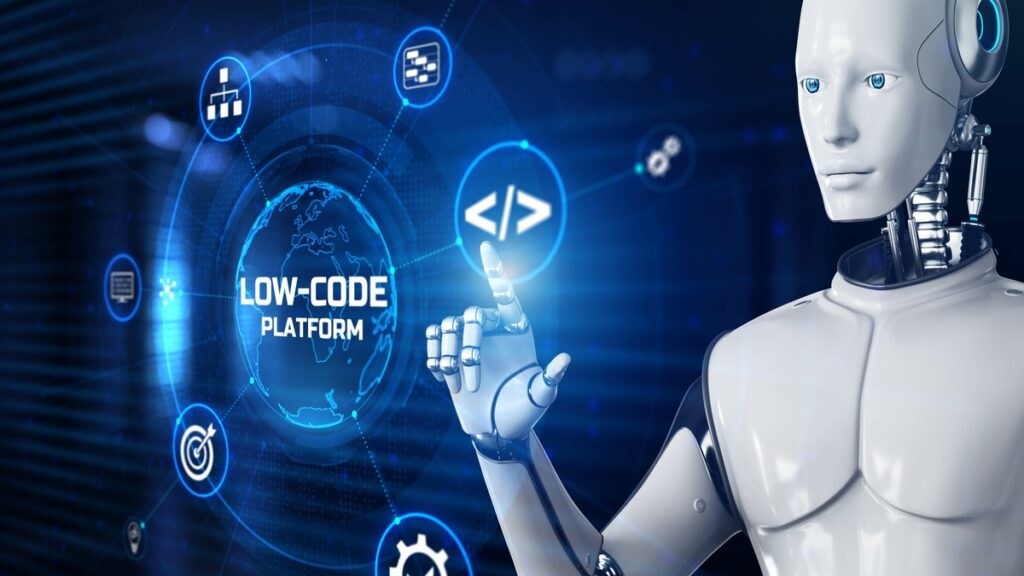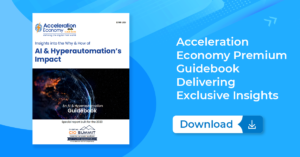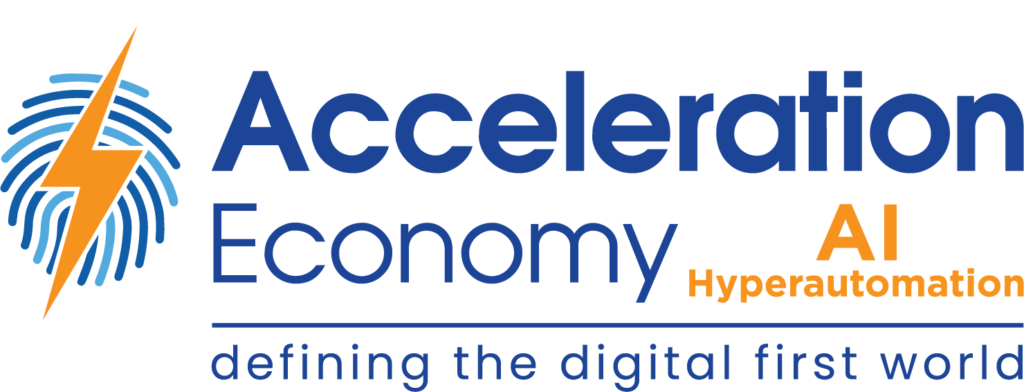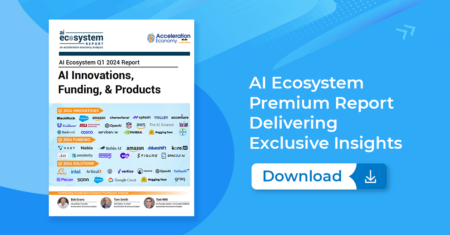Businesses are having a hard time capitalizing on their hyperautomation and IT modernization objectives due to a scarcity of available technical expertise: talent shortages prevent 64% of innovative technologies from being adopted, according to Gartner research. This means many IT projects are delayed — or shelved — due to a lack of technical resources, including developers, infrastructure, and frameworks.
In response to these challenges, new low-code and no-code software development methods have developed as viable and practical alternatives to traditional development practices.
In this analysis, I’ll examine how businesses can do more development with less resources by adopting modern low-code/no-code technology that doesn’t require major upfront investments in hardware or software. I’ll also explore how artificial intelligence (AI) is making low-code/no-code even more impactful.
How Low Code/No Code Platforms Lower Barriers
Low-code/no-code platforms are changing software development by lowering the barrier to entry and speeding up the process of creating new applications. They facilitate rapid development of web and mobile apps, and they enhance users’ ability to solve problems. Employees with no coding skills, also known as citizen developers, can make an aesthetically appealing, fully functional digital product in a few minutes. Low-code/no-code tools let users visually define application user interfaces, workflows and data models and, if needed, write code.
Because of the value that these tools create, tech giants including Microsoft and Google are investing heavily in low-code/no-code environments.
Microsoft’s acquisition of Softomotive, a leading provider of robotic process automation (RPA) tools and creator of WinAutomation, demonstrates the sector’s potential as a driver of business innovation. The acquisition of Softomotive has enhanced Microsoft’s Power Automate desktop automation capability with thousands of additional features and plugins.
Similarly, Google acquired Appsheet, a low-code/no-code platform, to help Google Cloud deliver a software platform that helps enterprises innovate with no-code development, process automation, application integration, and API administration.
4 Reasons to Adopt Low-Code/No-Code Platforms
In my experience, many businesses are reluctant to adopt new technologies for fear of overwhelming their current workforce with training and other requirements. However, the key advantages of these technologies — in this case, low-code/no-code tools can transform businesspeople into productive developers — are not communicated in an effective manner.
In order to make this value as clear as possible, here are four ways that utilizing low-code/no-code products benefits a business:
- More businesspeople developing code translates to more automated functions through visually attractive, fully functional apps
- Deployment of code snippets and plugins, which further enhance productivity, is accelerated thanks to the agility and simplicity of these platforms
- Business teams and developers have more time to focus on building truly innovative functionality, while low-code/no-code platforms handle design, development, integration, testing, and deployment of applications that automate routine functions
- When citizen developers take part in application development from the start, a crucial layer in the development process is removed, namely, gathering requirements and gaining approval. The entire process of creating and releasing software incorporates their requirements by default; therefore, the process is accelerated
How AI Components Make Low-Code/No-Code Smarter
At the same time that low-code/no-code platforms take hold as part of corporate development strategies, AI is playing a critical role in making low-code/no-code tools smarter. AI automatically suggests pre-built, drag-and-drop modules that can be imported to perform tasks such as replying to emails, downloading attachments, sorting files, extracting reports, and many more functions that are time-consuming and error-prone.
Adding a dose of AI to low-code/no-code platforms with intelligent process automation (IPA) capabilities can enable applications to process semi-structured and structured data, making AI available to a wider group of workers. The AI algorithms learn and understand as you load components and provide inputs. Citizen developers see everything on the screen in plain English and have no idea that the tools are writing code for them while they assemble these applications, thanks to the intuitive nature of these tools.
Sonae, a multinational corporation headquartered in Porto, Portugal, is leveraging Microsoft Power Automate to eliminate the repetitive, manual tasks involved in scheduling meetings. Sonae created a SharePoint page where internship candidates can book meetings with available leaders. Candidates went to SharePoint to search for their preferred business leader to set up interviews. A flow that runs in the background ensures only available appointments are visible. The process has been a huge success: HR intervention is no longer required and scheduling that previously took three employees a week to execute now happens in 30 minutes with no intervention and zero errors.
Conclusion
Low-code/no-code platforms encourage cross-functional cooperation and transparency to improve IT and business alignment. They support corporate decision-making and data democratization by giving business users immediate access to advanced analytics tools. They also reduce AI bias by involving more people and viewpoints in the coding process.
Citizen developers are not meant to replace coders. Low-code/no-code makes technology accessible to more people so they can strengthen their industry-specific skills. Citizen developers combine the best of human expertise and knowledge with cutting-edge development practices; in so doing, they will contribute to additional innovation and business growth.
Looking for real-world insights into artificial intelligence and hyperautomation? Subscribe to the AI and Hyperautomation channel:










